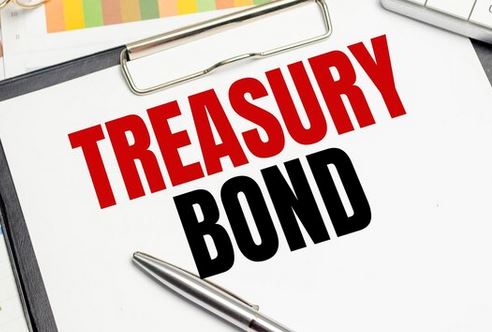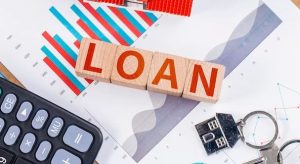Government securities are increasingly becoming popular among local investors due to their attractive rates, safety, and flexibility. Nowadays, we see individual investors, corporate entities, and commercial banks investing in treasury bonds and bills in Kenya.
One invests in government securities from Ksh 50,000 (which applies to treasury bonds) or Ksh 100,000 (which applies to treasury bills). Not only can locally-based investors qualify for these securities, but also those Kenyans who live abroad.
I’ll share the requirements for qualifying as an investor for these government securities, how to buy them, and other essential details you should know as a beginner investor. Here are the issues we shall discuss:
- What are treasury bills?
- What are treasury bonds?
- What’s the difference between treasury bills and treasury bonds in Kenya?
- Who qualifies for these government securities?
- What are the benefits of these government securities?
- How do you buy treasury bonds in Kenya?
- How do you buy treasury bills in Kenya?
- Treasury bonds calculator
- Funds access before maturity
- Risks of investing in these government securities
Let’s dive in!

What Are Treasury Bills in Kenya?
Treasury bills (or T-Bills) are short-term government investments with a maturity timeline of 91, 182, or 364 days (3, 6, or 12 months). Investors make money by buying T-Bills at a discount price. They pay less than the face value of the treasury bills, but once maturity is reached, they receive the face value of the bills.
Overall, the minimum amount to invest in treasury bills in Kenya is Ksh 100,000 in denominations of Ksh 50,000.
What Are Treasury Bonds in Kenya?
Treasury bonds (or T-Bonds) are medium and long-term investments that allow investors to lend to the government for a specified period, usually 1-30 years. Investors typically earn interest every six months until the bond matures, after which they receive the T-Bonds’ face value.
Today, the minimum amount to invest in treasury bonds in Kenya is Ksh 50,000.
What’s The Difference Between Treasury Bills and Bonds Kenya?
Both treasury bonds and bills may be government securities, but they differ. For one, treasury bills are short-term with a maturity profile of 3-12 months, while treasury bonds are medium-to-long-term with a maturity profile of 1-30 years.
The second difference is that the minimum investment for treasury bonds is Ksh 50,000 while that for treasury bills is Ksh 1,000
You’ll also discover that you earn money from treasury bills by buying them at a discount and receiving the total face value at the end of the bills’ maturity. Meanwhile, you receive interest (every six months) from treasury bonds until the bond matures, after which you get its face value.
The other difference is that the Central Bank of Kenya (CBK) auctions treasury bills weekly and treasury bonds monthly.
Below is a table breakdown of the difference between the two government securities:
| – | Treasury Bills | Treasury Bonds |
| Maturity Timeline | 3-12 months | 1-30 years |
| Minimum Investment | Ksh 100,000 | Ksh 50,000 |
| How You Earn | Pay the discount price and earn the total face value at the end of maturity | Receive interest every six months until maturity |
| CBK Auction | Weekly | Monthly |
Who Qualifies for These Government Securities?
Any of the following parties can invest in government securities (treasury bills and treasury bonds):
- Individual investors
- Commercial banks
- Pension schemes
- Corporate entities
Essentially, you must have a local commercial bank account and open a CDS account with CBK before investing in government securities.
Alternatively, you can open a client account with your respective commercial bank instead of a CBK CDS account and allow the bank to invest on your behalf. In that case, you won’t be directly dealing with CBK.
While Kenyans living abroad can open a CDS account and buy government securities, they need a local nominee (a local bank, stockbroker, or investment bank).
While signing up for a CDS account is free, commercial banks usually impose a fee on the client account.

What Are the Benefits of These Government Securities?
Treasury bonds and treasury bills generally come with these benefits:
- Security – Since you invest in the Kenyan government, T-Bills and T-Bonds are pretty safe.
- Attractive rates – As you’ll see later, government securities have a more impressive return rate than most investments
- Predictable returns – T-bonds, in particular, mostly have fixed semi-annual payments to allow you to earn interest income every six months.
- Flexibility – The Kenyan treasury auctions different types of T-Bonds to allow you to invest in whatever you are comfortable with. Furthermore, anyone can invest, including Kenyans living abroad.
- Hedge against inflation – Government securities’ returns usually keep pace with the inflation rate and sometimes hedge it.
- Short-term maturity for treasury bills – You can settle for 3,6, or 12-month maturity for treasury bills, which allows you to earn a return on investment much quicker.
How to Buy Treasury Bonds in Kenya?
Generally, you can buy treasury bonds through CBK’s DhowCSD platform, where you can register for a CDS account, or through the local back, where the bank acts as a custodian.
Here’s how to buy government bonds in Kenya:
Step 1 – Open a CDS account
Open a CDS account with the CBK, which will allow you to start buying government securities. Remember, you’ll need to meet these minimum requirements to do it:
- Have a local bank account with two signatories
- Fill out a mandate card with block letters, and don’t disfigure it
- Provide a passport photo certified-stamped by your local bank and an ID/passport/Allen certificate
Step 2 – Choose a maturity timeline
Log into the DhowCSD investor’s portal and choose the securities’ maturity timeline. Government bonds offer the option of 1-30 years. So, choose the maturity profile you prefer.
Step 3 – Pick your preferred bond type
You should select the government bond type you want to invest in. Below are the common types of bonds in Kenya:
- Fixed-coupon treasury bonds – These are treasury bonds whose interest doesn’t change over the bond’s maturity, and their semi-annual interest payments remain the same.
- Infrastructure bonds – These bonds are used explicitly for infrastructural government projects and usually have a fixed interest rate. Their returns are tax-exempt, which means they often have a higher interest rate.
- Zero coupon bonds – These treasury bonds are similar to treasury bills. They are sold at a discount and don’t have interest payments like other bonds. Moreover, they are short-term.
Note that the government used to issue floating-rate bonds, but it does not anymore. These bonds pay semi-annual interest on a 91-day or 182-day benchmark. Corporate bodies currently issue them, but the government stopped issuing them in 2001.
Step 4 – Create and submit a bid
Using the DhowCSD online portal or mobile app, do the following:
- Log into the investor’s portal to create and submit your bid
- Click on the ‘Auctions’ menu
- Go to ‘Create Bid’ and then ‘Place Bid’
- Fill out the amount section, yield, bond broker details, and source of funds
- Accept the terms and click on ‘Place Bid.’
- Complete the application
Step 5 – Check auction results
Keep visiting the DhowCSD platform to check your bid’s success and how much you should pay. Remember, the government auctions t-bonds monthly.
Step 6 – Make payment
Once your bid is successful, go ahead and make payments. You should do it by 2 pm on the settlement date.

How to Buy Treasury Bills in Kenya?
The process for buying treasury bills in Kenya is similar to that of buying treasury bonds. That includes these steps:
- Open a CSD account with CBK through the DhowCSD platform
- Log into the investor’s portal on DhowCSD
- Go to the treasury bills section and choose the maturity profile (91, 182, or 364 days)
- Create and submit a bid vis DhowCSD using the steps shared earlier
- Check the auction results (the government auctions T-bills weekly, remember)
- Make the necessary payments before 2 pm of the settlement date once your bid is successful.
Treasury Bonds Vs Treasury Bills Interest Rate
According to CEID Data, the treasury bonds Kenya interest rate by March 2023 was 14% and a month later, 14.37%. If you go back to 2021, the interest rate was 0.00%, and as of June 2021, it was about 16.13%. That shows a massive improvement between 2016 and 2023.
Meanwhile, the CID Data report also shows that Kenya’s treasury bills interest rates for a 91-day benchmark as of September 2023 and October 2023 were 10.50% and 14.38%, respectively. So, that again shows an improvement.
Treasury Bonds Kenya Calculator
The Treasury Bonds Calculator allows you to calculate the amount you’ll pay for the bond depending on the bond’s face value and coupon rate. Just fill out the details and let the online calculator do the math.
Remember, CBK also has an online calculator for treasury bills, which also calculates the amount you should pay for you. You must also complete the necessary details; the calculator will calculate your estimates.
Funds Access Before Maturity
Ideally, investors should wait until the maturity of government securities to claim their money. However, that doesn’t mean you cannot access your investment. The only issue is that CBK will repurchase the securities punitively, discouraging investors from cashing out too early. So, it makes more sense to hold your investment until maturity.
Note that since T-Bonds are traded on secondary markets like the NSE, they offer investors the chance to get back their money without rediscounting. However, T-Bills don’t have such an advantage as they aren’t traded on secondary markets.
For T-Bills, a rediscount is often the last resort for availing funds to investors who can access the funds before maturity. You need to write a formal request to your bank and attach all relevant documents. If it’s a company, you must provide a letter of incorporation.
On the other hand, a rediscount is a last resort for T-Bonds for investors who want to recall their funds before maturity and can’t find a buyer in secondary markets. You’ll need to provide a letter from the NSE, among other requirements.

Risks of Investing in These Government Securities
Treasury bonds and treasury bills are not risk-free. They have some risks, just like any other government investment. Notable ones are:
- Interest rate risk – A drop in the interest rate usually lowers the bonds’ price.
- Foreign exchange risk – Some bonds depend on foreign currency performance. Its fluctuation can offset the prices of these government securities.
- Liquidity risk – Sometimes, investors may be forced to sell their securities at a discount (or rediscount them) due to lacking a buyer or market.
- Sovereign risk – Payments to investors can be affected by economic and political shifts in the country.
Concluding Thought:
Treasury bonds and bills in Kenya are undeniably attractive investments for locally-based investors and Kenyans abroad. Their returns are pretty impressive, and since you invest in the Kenyan government, the investments are relatively safe, and you want that as an investor.
Remember to review the terms and conditions to avoid surprises. And if you can, talk to an investment expert who understands government securities to devise the perfect investment plan.
Also Read:







